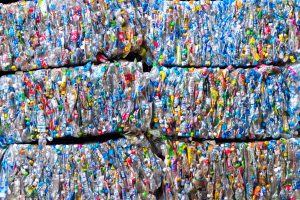The bold ambition of C-THRU is to deliver foresight on the future interventions and innovation opportunities in the petrochemical sector required to minimize greenhouse gas (GHG) emissions. This will be achieved by delivering the world’s most comprehensive, reliable and transparent account of current and future emissions for the global petrochemical sector. This account and the underlying modelling methods, tools and data will support strategic policy and business decision-making to promote the sustainability of the petrochemical sector, making it compatible with climate change mitigation goals.
The data tools and methods created by C-THRU will enable the anticipation of demand, use and waste generation of a wide range of petrochemicals, testing the future impacts of various strategic shifts in the industry. This will detail the key petrochemical products and applications that could enable a transformation in the configuration of value chains with less emissions. Within possible configurations, we will test the conditions under which the shift of oil and gas from fuels to chemicals and plastics is compatible with climate change mitigation goals. It will equally assess the impact on GHG emissions of future improvements in process efficiency, switches to new process routes and novel decarbonization technologies.
This novel approach will require an extension to the boundaries of current emissions accounts to cover global petrochemical feedstocks and production, but also their end-use application, use, and end-of-life treatment. Forecasting future demand for petrochemicals will be enabled by mapping downstream flows to end-use product stocks, using a mix of economic trends (such as population and income) to model new stock accumulation and product use patterns (such as lifetime distributions) to model demand for stock replacement. Underpinning this research will be an open-access data modelling framework to compile and reconcile data from disparate sources. This will provide an integrated view of data uncertainty and an unbiased account of emissions along the full lifecycle of petrochemicals. We will conduct a Literature Review (RFP I) of GHG emissions data and monitoring regimes to assess data coverage and uncertainty across petrochemical sectors and global regions. This will help identify knowledge gaps and provide an informed view on the veracity of current emissions data. A deepdive analysis (RFP II) of process technologies, mitigation interventions, and recycling processes will follow, focusing on four key plastics–polypropylene, polyethylene, PET and PVC—with significant environment impact. Surrounding the modelling activities sits exploratory research to evaluate the wider business landscape, assessing regional production capacities and the restraining effects of sunk costs, and the economic context, including trends in per capita demand for petrochemical products.
The output of C-THRU will provide significant value to the research community where no accessible model currently exists, to emissions monitoring bodies for verifying emission accounts, and to environmental advocacy groups and the public for holding the industry to account.




